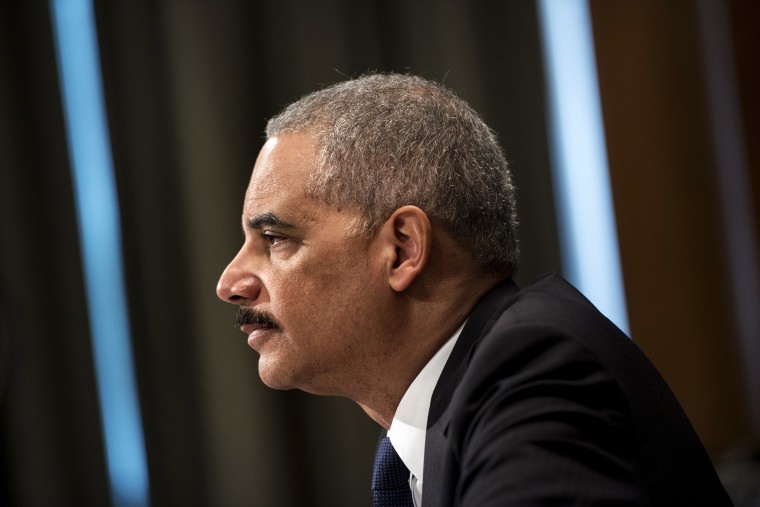Racism in America is characterized less by the kind of outlandish statements that capture media attention and more by a subtler web of policies and assumptions—including restrictions on the right to vote—that work against equality, Attorney General Eric Holder argued Saturday in a commencement speech.
Holder also took direct aim at Supreme Court Chief Justice John Roberts's view that policies that take account of race only perpetuate discrimination.
Holder's comments, delivered to students at the historically black college Morgan State University, in Baltimore, appeared to reference racial flare-ups -- from Nevada rancher Cliven Bundy and Los Angeles Clippers owner Donald Sterling -- that have dominated headlines in recent weeks.
“These outbursts of bigotry, while deplorable, are not the true markers of the struggle that still must be waged, or the work that still needs to be done,” said Holder, the nation’s first African-American attorney general, according to his prepared remarks. “The greatest threats are more subtle. They cut deeper. And their terrible impact endures long after the headlines have faded and obvious, ignorant expressions of hatred have been marginalized.”
As an example, Holder cited Republican-backed voting restrictions like voter ID laws. Though they’re justified as preventing fraud, he said, “these policies disproportionately disenfranchise African-Americans, Hispanics, other communities of color, and vulnerable populations such as the elderly.
“Interfering with or depriving a person of the right to vote should never be a political aim," Holder added. "It is a moral failing.”
Under Holder, the Justice Department has brought lawsuits under the Voting Rights Act against restrictive voting laws in Texas and North Carolina.
Holder also highlighted what he called “systemic and unwarranted racial disparities” in the criminal justice system. He noted a recent study finding that black males receive sentence that are nearly 20% longer than those received by white males convicted of similar crimes.
“Disparate outcomes are not only shameful and unacceptable, they impede our ability to see that justice is done,” Holder said.
And he said zero-tolerance disciplinary practices in schools may be “well-intentioned,” but they end up affecting black males at three times the rate that they affect white males.
Speaking more broadly, Holder directly went after Roberts, who has said that the best way to stop racial discrimination is to avoid policies that take account of race, like affirmative action.
“This presupposes that racial discrimination is at a sufficiently low ebb that it doesn’t need to be actively confronted,” said Holder. “In its most obvious forms, it might be. But discrimination does not always come in the form of a hateful epithet or a Jim Crow-like statute. And so we must continue to take account of racial inequality, especially in its less obvious forms, and actively discuss ways to combat it.”
Holder has long been relatively outspoken on the subject of race. In 2009, he set off a firestorm on the right by calling America “a nation of cowards” for not discussing the issue honestly.
